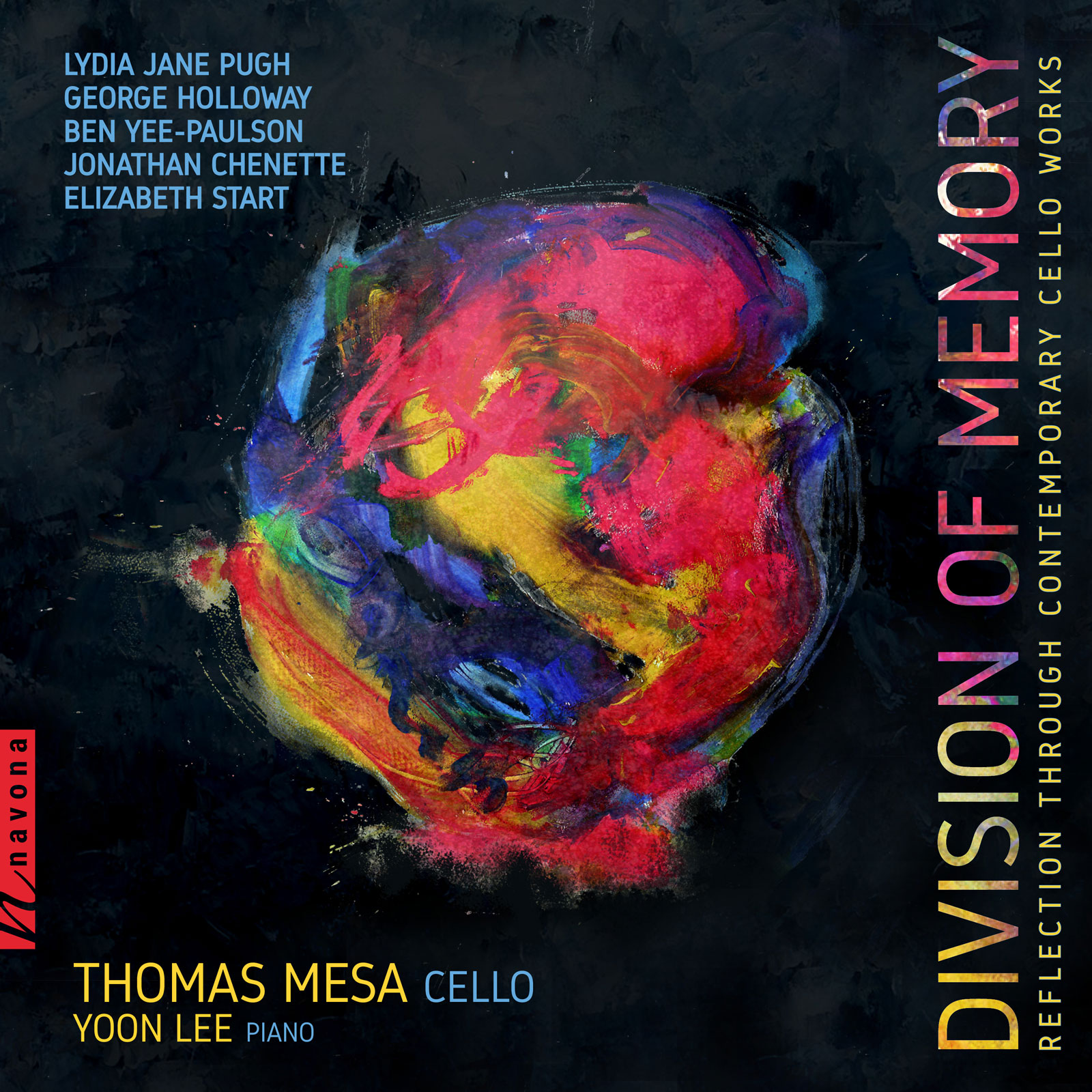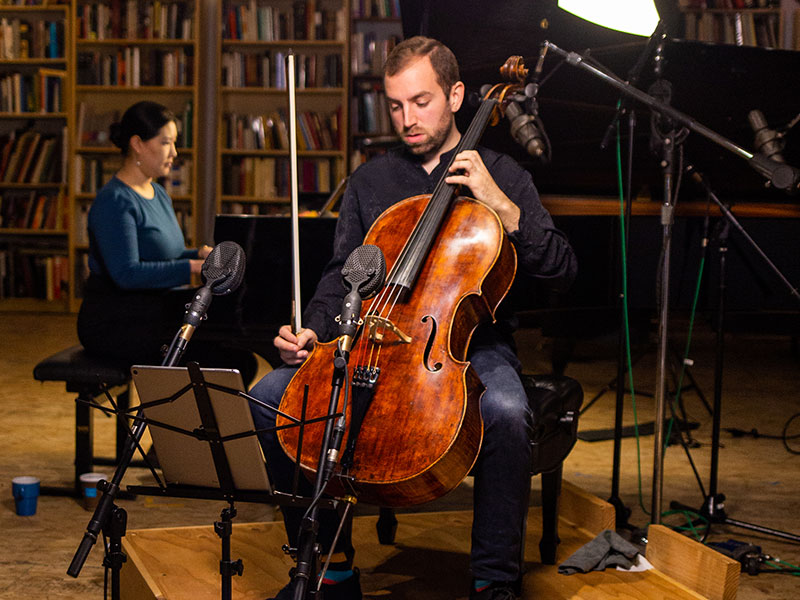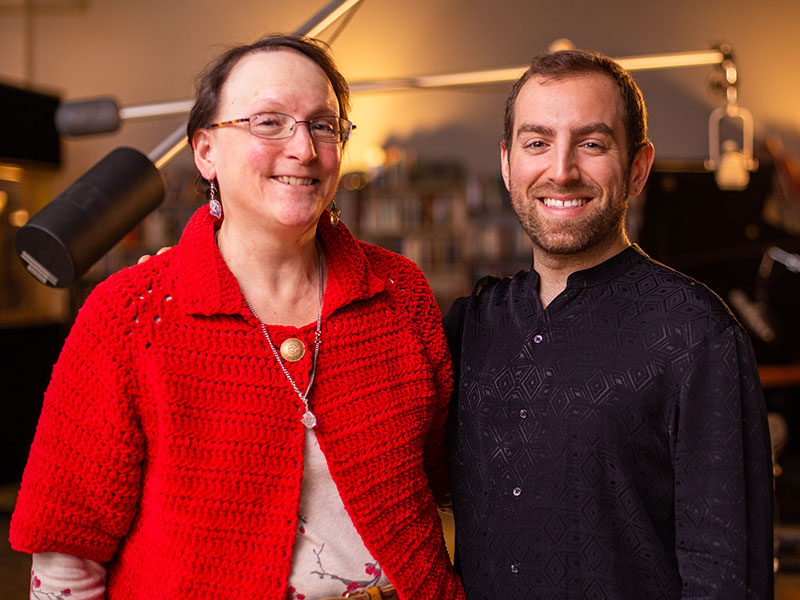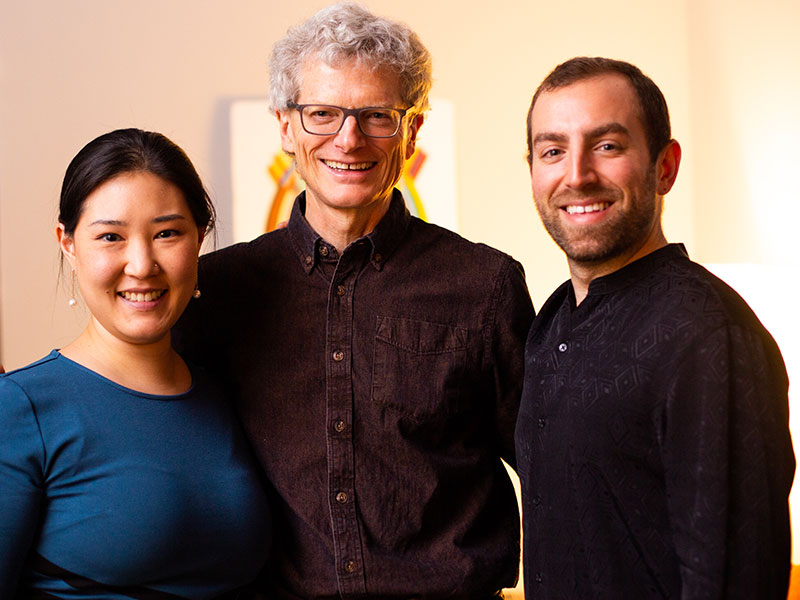Division of Memory
Lydia Jane Pugh composer
George Holloway composer
Ben Yee-Paulson composer
Jonathan Chenette composer
Elizabeth Start composer
Thomas Mesa cello
Yoon Lee piano
Navona Records presents DIVISION OF MEMORY, a comprehensive collection featuring a variety of sound production methods displayed on the cello by Thomas Mesa. The works of composers Lydia Jane Pugh, George Holloway, Ben Yee-Paulson, Jonathan Chenette, and Elizabeth Start are featured on this album, each with their own compositional personality and a repertoire dedicated to the multifaceted soundscape of the cello. Music inspired by traditional Paiute Indian melodies, sounds borrowed from Asian bowed string instruments, traditional fiddle playing, and more are echoed throughout. Mesa is accompanied by pianist Yoon Lee in this cello-oriented collaboration.
Listen
Stream/Buy
Choose your platform
"The composers are new to our ears, but this is a good way to meet them."
"easy to enjoy and difficult to forget"
Performance Videos
Elizabeth Start – Echoes in Life | Lydia Jane Pugh – Carolina’s Jig
Track Listing & Credits
| # | Title | Composer | Performer | |
|---|---|---|---|---|
| 01 | Carolina's Jig | Lydia Jane Pugh | Thomas Mesa, cello | 3:30 |
| 02 | Novella (Chapter One) | George Holloway | Thomas Mesa, cello; Yoon Lee, piano | 8:00 |
| 03 | Suite for Solo Cello No. 1: I. Bittersweet, Hopeful | Ben Yee-Paulson | Thomas Mesa, cello | 4:34 |
| 04 | Suite for Solo Cello No. 1: II. Playful, Gentle | Ben Yee-Paulson | Thomas Mesa, cello | 4:32 |
| 05 | Suite for Solo Cello No. 1: III. A Blast of Joy | Ben Yee-Paulson | Thomas Mesa, cello | 4:33 |
| 06 | Elegy and Affirmation: I. Elegy | Jonathan Chenette | Thomas Mesa, cello; Yoon Lee, piano | 9:18 |
| 07 | Elegy and Affirmation: II. Affirmation | Jonathan Chenette | Thomas Mesa, cello; Yoon Lee, piano | 6:33 |
| 08 | Echoes in Life | Elizabeth Start | Thomas Mesa, cello | 6:47 |
CAROLINA’S JIG, ELEGY AND AFFIRMATION, ECHOES IN LIFE
Recorded December 4-5, 2019 at Oktaven Audio in Mount Vernon NY
Session Engineer Ryan Streber
Assistant Engineer Teng Chen
Assistant Engineer Edwin Huet
NOVELLA (CHAPTER ONE), SUITE FOR SOLO CELLO NO. 1
Recorded April 29, 2021 at Oktaven Audio in Mount Vernon NY
Session Engineer Ryan Streber
Session Producer, Editing, Mixing & Mastering Brad Michel
Executive Producer Bob Lord
Executive A&R Sam Renshaw
A&R Director Brandon MacNeil
A&R Quinton Blue, Morgan Santos
General Manager of Audio & Sessions Jan Košulič
Recording Sessions Director Levi Brown
Audio Director Lucas Paquette
Production Assistant Martina Watzková
Recording Sessions Assistant Emma Terrell
VP, Design & Marketing Brett Picknell
Art Director Ryan Harrison
Design Edward A. Fleming
Publicity Patrick Niland, Sara Warner
Artist Information

Lydia Jane Pugh
Hailing from the island of Guernsey, Lydia Jane Pugh is an award-winning composer specialising in choral and chamber music, with much of her work being inspired by the islands’ history, culture, and beautiful landscapes. Her music’s universal appeal has led to performances around the world by several professional groups, including the Ebor Singers in the United Kingdom, and the Empire City Men’s Chorus in the United States.

George Holloway
George Holloway is currently an assistant professor of composition in the department of ethnomusicology in Nanhua University, Taiwan. He was formerly Dean of Composition at Tianjin Conservatory of Music in China. In this role, George was the first foreign head of department in any Chinese conservatory. George has also taught at the Central Conservatory of Music in Beijing and the University of Southampton.

Ben Yee-Paulson
Benjamin Yee-Paulson (b. 1994) is an internationally recognized American composer. Born in Boston MA, his music has reached many countries like the United Kingdom, France, Belgium, and the United States. His music has premiered in many prestigious places like Carnegie Hall, Jordan Hall, Harvard University, Curtis Institute of Music, Warwick Castle in England, La Schola Cantorum in Paris, and the world opening of Microsoft’s flagship store in New York City.

Jonathan Chenette
Jonathan Chenette’s compositions have received international recognition, including performances on the ISCM World Music Days in Amsterdam, at the World Harp Congress in Vienna, at the Bishop Auckland Early Music Festival in the United Kingdom, and on an NPR national broadcast by the St. Paul Chamber Orchestra. His music appears in publications by Boosey & Hawkes, Theodore Presser, and Fish Creek Music and in recordings on the Innova, Riverrun, Fleur de Son Classics, and Capstone labels. Much of his music has involved collaborations with visual artists, writers, dancers, folk musicians, farmers, environmental advocates, and museums.

Elizabeth Start
Elizabeth Start is a composer, cellist, arts administrator, and union officer, currently dividing her time between Kalamazoo MI and the Chicago area.
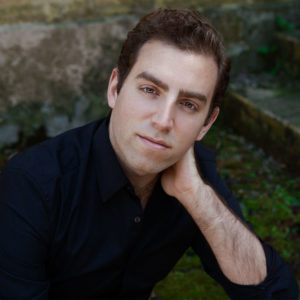
Thomas Mesa
Cuban-American cellist Thomas Mesa has established himself as one of the most charismatic, innovative, and engaging performers of his generation. Mesa was the winner of the $50,000 First Prize in the 2016 Sphinx Competition; the Thaviu Competition for String Performance (Chicago, 2013); The Astral Artists 2017 National Auditions; and the Alhambra Orchestra Concerto Competition. He has appeared as soloist with orchestras in the United States and Mexico, including the Los Angeles Philharmonic at the Hollywood Bowl, Santa Barbara Symphony, Southwest Florida Symphony Orchestra, and the Cleveland Orchestra, which received this rave review from the Cleveland Plain Dealer: “A listener with closed eyes would have been hard pressed to distinguish [Mesa’s] shapely, expressive performance from that of another gifted artist two or three times his age.”
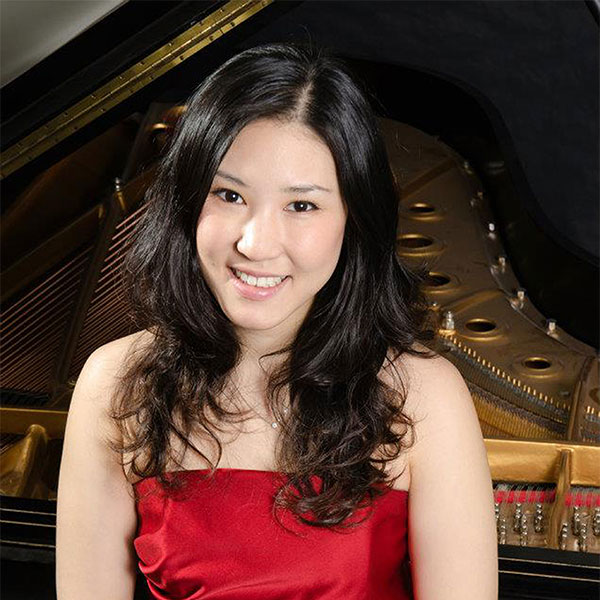
Yoon Lee
A pianist, educator, and entrepreneur, Yoon Lee is the Special Prize winner of the Anton G. Rubinstein International Piano Competition. Yoon Lee is a member of faculty of SUNY Purchase College and Heifetz International Music Institute, as well as a staff pianist of The Juilliard School. Her performance of Beethoven has been described as “equal to Beethoven’s virtuosic demands” by New York Concert Review.
